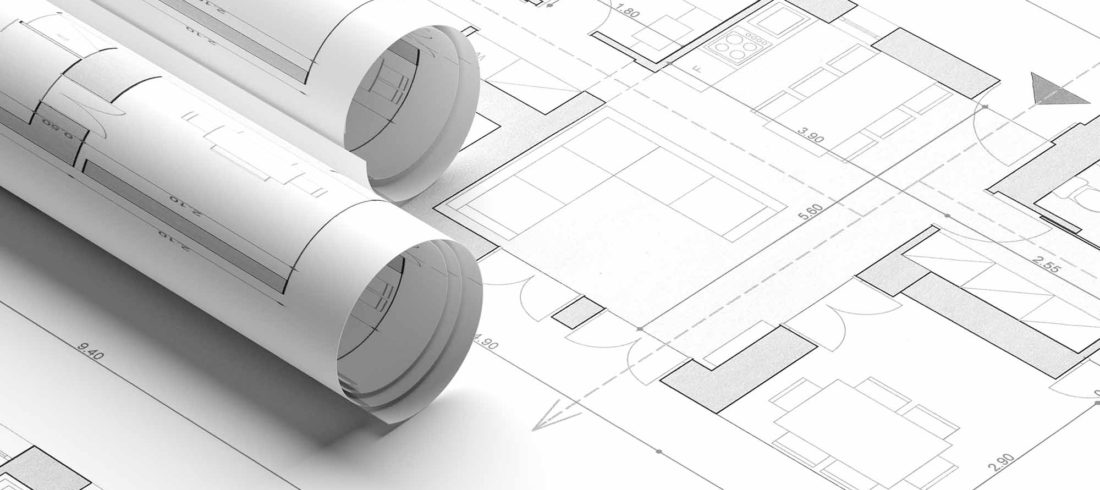
Every construction project shares a consistent theme. Successful builds start with a strong physical foundation. Likewise, during the preconstruction process, thorough planning helps set the foundation for your project’s success. Continue reading to discover:
The preconstruction timeline occurs at the beginning of every project cycle. During this stage, designers collaborate with general contractors to develop:
Once a rough project scope is finalized, they’ll plan through the specifics of your build, including:
Being deliberate with your commercial preconstruction service is vital to a job well done, and the earlier you start collaborating, the more successful your project can be.
Collaboration between separate parties during the early stages of your construction cycle is important because poor communication throws your project off track.
The relationship between poor communication and construction delays is represented by the cost-influence theory, which proposes that as a construction project advances through each step, you lose the ability to stay within budget.
But if you communicate openly and frequently during the initial stages of your project, you’re more likely to keep it on track. Working with a design-build contractor during the preconstruction phase helps establish those communication loops that you need for navigating the project cycle.
By investing in a design-build method, you streamline your project delivery through a single contractor because they’ve already established the relationships you need.
Design-build contractors manage the early stages of your project by offering preconstruction services, like:
By partnering with a singular provider for your commercial preconstruction services, you help mitigate the risks associated with poor planning, collaboration, and communication.
During commercial preconstruction services, your general contractors should plan through the following components:
The first thing general contractors should do during preconstruction is meet with you and define the project’s scope. They’ll ask you questions like:
Use this meeting to explain your vision for the project. Give as much information as you can and want to, because that’s how a general contractor will create a construction plan aligned with your expectations.
Once you’ve established your goals and objectives, you’ll have a second meeting with the team to identify your budget. You’ll work with both the designers and construction team to walk through:
After finalizing your project scope and budget, your construction provider will plan through building details, such as:
From there, your architect takes over to create blueprints based on your project goals. Your general contractors should follow these drawings during construction to make sure the build meets your expectations.
During all ten stages, commercial general contractors should keep you up-to-date on the construction progress, new developments, and potential issues.
Once your construction provider finalizes building plans, they should assemble a construction crew. This task is easier for full-service general contractors since they already have qualified builders at their disposal.
Suppose you didn’t work with a full-service provider. In that case, your construction company needs to post bid packages for each part of your project, and find potential subcontractors to outsource each task.
The recent pandemic highlighted the importance of proper planning for long lead-time materials. Construction projects throughout the country were subjected to supply chain delays, as contractors struggled to receive materials within the projected timeline.
The time it takes to order and receive your materials can make or break a project schedule. As part of your commercial preconstruction service, your contractor should be proactive in procuring all necessary materials and equipment for the job. They should pay special attention to items on backorder, and make adjustments if needed. It’s best to include procurement tasks into your overall construction schedule to maximize the delivery, phasing, and staging of building materials.
New building construction is a disruptive project, and your general contractors should take the necessary precautions to avoid logistic issues.
When you try to balance incoming construction vehicles, material drop-offs, and everyday traffic, your site gets crowded. Create a plan to account for:
Staying ahead of these logistic hurdles helps your entire project run smoothly.
Local building permits are the government’s way of ensuring construction projects comply with building codes. Ignoring building requirements is a serious safety hazard and could result in expensive fines for your business. Every commercial construction project requires building permits, and additional documentation is often required depending on your local legislation.
For Omaha, in addition to building permits, your general contractors need to provide the following:
Nebraska state plan reviews ensure all structural and mechanical elements in your new facility are up to code, such as:
Before construction begins, the city of Omaha need to improve your site plans, which include:
Commercial preconstruction services wrap up by creating the communication loops needed for the physical construction stages.
If you want to avoid the hassle that comes with multiple contractors, partner with a full-service provider. Their access to in-house staff and existing vendors allows consistent communication throughout your entire project.
If you’re looking for a full-service construction provider to handle your entire project, partner with CK construction.
By managing each aspect of your building project, we establish communication loops, procure materials and permits, and have staff on hand to complete your project.
Have a new construction project on the horizon? Reach out to our expert team and discover the CK difference.